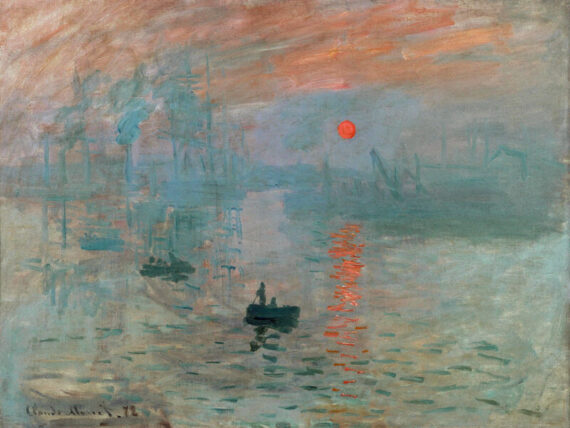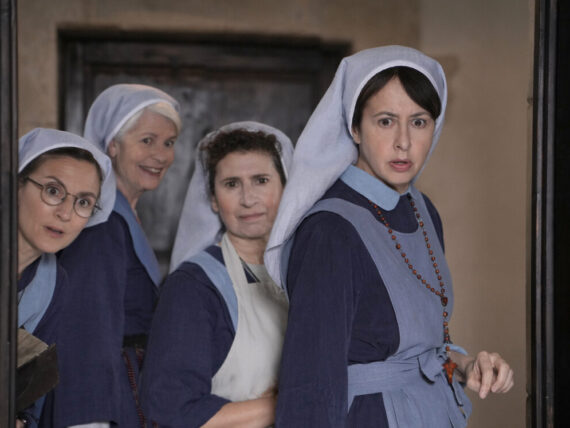by Helen Tope
A dark, unsettling film, The Lost Daughter looks at the complicated, ambiguous relationship between mothers and daughters. Centered on the female experience, actor Maggie Gyllenhaal (The Kindergarten Teacher, Secretary) is director and screen-writer, leading an impressive cast featuring Olivia Colman, Dakota Johnson and Jessie Buckley.
The Lost Daughter introduces us to literature professor, Leda Caruso (played by Colman). She arrives at a gorgeous Greek coastal town for a holiday (you’ll be searching for Greek getaways before the credits roll). But as Leda settles on the beach, her peace is rudely interrupted when an American family arrives en masse. Loud, boorish and intimidating, Leda is warned by locals not to cross them – they are “bad people”.
The film begins with Leda in contemplative mood. As she watches the family take over the beach, one of them intrigues her. A young mother, Nina (Dakota Johnson), prompts Leda to think about her own years as a mother. We switch to Jessie Buckley playing the younger Leda, and the scene is familiar to anyone with children. Leda is trying to work, her daughters – Bianca and Martha – are running around, playing up, demanding her attention. Leda’s career as an academic is on a delicate footing – she needs to be ‘in the room’, not at home. The sense of obligation and resentment is already hanging heavy in the air. The Lost Daughter then takes us into an unexpected subplot when Nina’s daughter briefly goes missing. Leda finds the girl, and is thanked by the family. She then – on a strange impulse – steals the girl’s doll. Leda, already on the family’s radar, attracts their suspicion, and this seemingly innocuous act threatens to spiral out of control.
Based on the Elena Ferrante novel (Ferrante only gave her approval for the book to be filmed once a female director was attached to the project), The Lost Daughter has a strange, ruminative feel that seeps into every aspect of the film. Gyllenhaal, making her directorial debut, handles the source material with confidence. The uneasy, wavering tone – introspective moments punctured by scenes of real menace – is never diluted.
Gyllenhaal’s style is richly observant, but never intrusive. The performances, particularly Colman and Buckley, are the result of a light directorial touch. Actors-turned-directors typically know how to articulate what’s required, but here it feels like Gyllenhaal trusted the actors to develop and move forward at their own pace. While neither older or younger Leda is palatable to the audience, Gyllenhaal’s integrity in not softening the edges of Ferrante’s characters is why The Lost Daughter works as well as it does.
What also becomes clear is that this is a film not just about character, but atmosphere. Gyllenhaal’s use of sound is cleverly applied – waves crashing are a constant throughout, almost becoming the film’s heartbeat. They take Leda from the present to her past, and the film’s soundtrack is equally evocative. Choosing to play whole tracks (the Roberta Flack song “I Told Jesus” is played in full during a pivotal scene) the link between memory, nostalgia and pain is laid bare.
The Lost Daughter has already courted a great deal of controversy on its release. The response in the press to lines such as “children are a crushing responsibility” indicates that we are still very much adhered to maternal self-denial. Gyllenhaal’s take on this is thoroughly feminist: the frustration Leda feels at not being able to concentrate on her work; the joy she experiences when her work is given centre stage at an academic conference; these emotions are not excused or minimised.
This is not a film that points us towards some unspoken trail of abuse or trauma – The Lost Daughter instead focuses on Leda’s refusal to confirm to ideals, even those most revered in our culture. Her behaviour is seen by Gyllenhaal not as a transgressive act, but rather a perspective on motherhood that has gone unchallenged for too long. The Lost Daughter is a complex, provoking film – and at the root of its discomfort, are ideas we may not be fully ready to accept.
The Lost Daughter is showing at Plymouth Arts Cinema from 14th – 20th January 2022.
The screening on Tuesday 18th is a special Reclaim The Frame screening which includes a pre-recorded introduction of 8 mins with writer-director Maggie Gyllenhaal.









Comments
No comment yet.